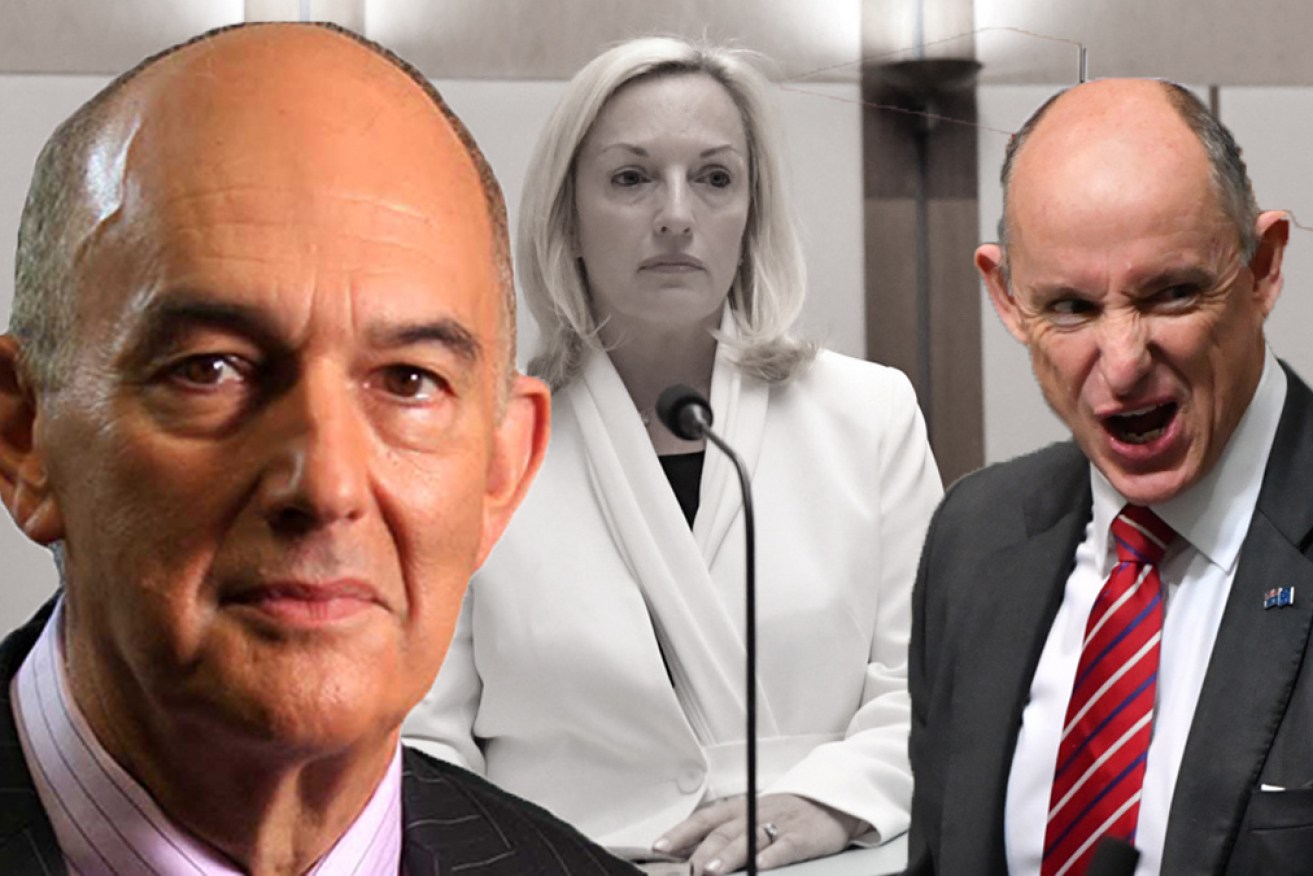Paul Bongiorno: The government delivers more hypocrisy to the nation


The Christine Holgate affair highlights the government hypocrisy exemplified by Stuart Robert, Paul Bongiorno says.
The brouhaha over Christine Holgate’s $20,000 gift of watches to fat cat Australia Post executives is more of the double standards and downright hypocrisy in our politics.
Nothing new for sure, but no more palatable for the Morrison government’s recidivism.
One of the Prime Minister’s closest allies in cabinet, his leadership coup strategist and prayer mate when Parliament sits, Stuart Robert, is a prime exhibit.
Mr Robert can see no reason why he or any of his ministerial colleagues involved in or responsible for the misappropriation or the wasting of millions of dollars of taxpayers’ money should follow Ms Holgate out the door.
His direct involvement in the Commonwealth persisting with Robodebt, the computerised debt collection from 400,000 welfare recipients that led to a $1.2 billion settlement after numerous legal alerts and 2000 deaths, is the most startling case in point.
Mr Robert didn’t lose his job and, as we saw again last weekend on Insiders, his only defence is “a big lie”.
He claimed wrongly that the exact program had been used for 25 years, ignoring that in 2016 the government reversed the onus of proof, significantly removed human oversight, and dramatically ramped up its application.
Unlike in the Holgate saga, where she was subjected to an independent inquiry that found she had not breached the business’s protocols or broken any laws, Robodebt was shelved before it faced a massive class action in the courts.
And somehow the $77 million in bonuses paid to NBN executives in the past six months – during the pandemic, not two years before it – can’t be “conflated” with the Australia Post scandal, according to Mr Robert.
The dissembling calls into question the wisdom of these government business enterprises that mimic private enterprise.

Australia Post was corporatised in 1989 by the Hawke Labor government.
The postal service was corporatised in 1989 by the Hawke Labor government when such moves were the fashion in economic reform.
The national postal service now has become something of a retirement plan for Liberal Party hacks as an analysis in Crikey has pointed out.
Last year the directors’ fees paid to the four Liberal identities on the eight-member board was $450,000, or “the equivalent of 90 Cartier watches a year.”
Ms Holgate also failed to adequately appreciate the fact her shareholders were the Australian taxpayers represented by senior Morrison government ministers with an agenda that puts their political druthers above the company’s bottom line.
So, for example, she fell foul of the government’s real purposes spelled out in the secret Boston Consulting Group’s reports to significantly downsize the company and sell it off in whole or in part.
The CEO’s determination to expand the Australia Post business, which she was doing, simply didn’t fit this scheme.
She apparently took seriously the job description found on the Department of Communication’s website: “Australia Post is required by law to operate commercially and does not receive funding from the government.”
Indeed, it pays dividends to the government and as a result of her Bank@Post deal brought in $220 million, saved hundreds of post offices, and paid $22 million in GST.
No wonder she thought she wasn’t spending taxpayers’ money but rather saving it.
After the pile-on from both sides of Parliament, Ms Holgate realised she had given her critics an opening to attack her for her initial response: “I did not spend taxpayers’ money, Senator, we are a commercial organisation.”
She has now apologised for her failure to split these hairs.
Wouldn’t it be wonderful if the Prime Minister, who found the Cartier watch expenditure “appalling and disgraceful”, was just as outraged by the $30 million his government paid for a $3 million piece of land in Western Sydney, or the $6 million cost to detain the Tamil family of four from Biloela locked up on Christmas Island?
And where was the recognition that Ms Holgate’s salary of $1.6 million was four times less than that paid to her male predecessor Ahmed Fahour?
Is it any wonder Australians are beginning to lose their trust in politicians again just when they were beginning to regain it at the start of the pandemic?
Paul Bongiorno AM is a veteran of the Canberra Press Gallery, with 40 years’ experience covering Australian politics








